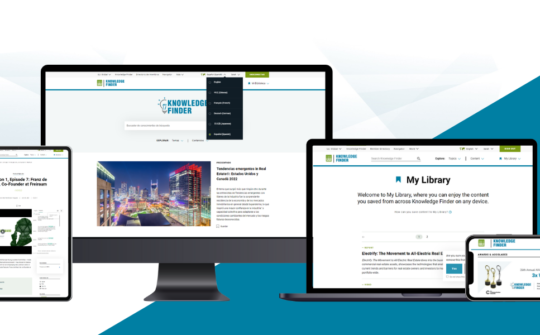ULI’s mission, and the theme of this FY21 Annual Report, is, “Shape the future of the built environment for transformative impact in communities worldwide.” ULI’s district and national councils are uniquely positioned to help the Institute achieve this goal.
District councils are Americas specific. They serve as regional networks, and with 53 locations across the Americas they are an extremely valuable resource for our members and the ULI mission. With 15 locations in Europe and seven in the Asia Pacific region, national councils are the Institute’s country networks that organize local events and activities. Both bring together a variety of public- and private-sector stakeholders to find solutions and build consensus around land use and development challenges. Both provide an opportunity to influence local land use policy by facilitating the exchange of knowledge between industry experts and community leaders. They achieve this through educational forums and events such as conferences, project tours, and community outreach programs.
In the ULI spirit of offering an unbiased and nonpartisan exchange on issues affecting the industry, the councils provide the avenues for active dialogues between private industry, environmental organizations, and public agencies to help provide solutions to local and regional issues.
ULI’s district and national councils networks are at the heart of the Institute’s ability to deliver on its mission; they can better focus their efforts in conducting community outreach programs; and council members provide industry expertise to community leaders and shape the future of the built environment and transformative impact on the community.
District Councils
At present, there are 52 active district councils throughout the Americas region and five organizing committees that are working toward full district council status. Collectively, they have over 32,000 members.
In FY21, district councils (DCs) contributed 28 percent of ULI’s overall revenue. The different council teams executed creative outdoor events, virtual conferences, and online programs, which helped DCs keep members engaged. Their “plug and play” virtual programming allowed DCs to collaborate on nationally focused programs and share revenue.
Despite the negative impact that the global pandemic had on membership organizations in general, a few district councils experienced significant growth in FY21 including ULI New Mexico and ULI Westchester/Fairfield, which both saw an impressive 24 percent growth, and ULI Toronto had an astonishing 384 new members join its council.
In FY21, 1,740-plus district council events were held, with more than 109,400-plus participants in total. Some of the most popular events included ULI Toronto’s Annual Trends in Real Estate event with 600-plus participants; ULI Philadelphia’s Conversation with Richard Rothstein event with 700-plus participants; ULI New York’s Leadership in the Age of Black Lives Matter event with over 700-plus participants; and ULI Arizona’s 16th Annual Trends Day, which topped the attendance charts with nearly 1,000 participants.
Despite the challenges the global pandemic created, the district council network thrived through creative solutions. Virtual programs, webinars, and accessible resources were intensified wherever possible; new mentorship programs and online event series were launched, too.
Networking is a key component of the councils and, keeping safety in mind, several councils found ways to get together, including events like golf tournaments. For example, ULI San Antonio’s golf tournament brought in over $66,000 in sponsorship. ULI Houston chose to host the 14th Annual Development of Distinction Award event in a covered outdoor venue, which was appreciated and enjoyed so much that members requested this same concept for future events regardless of the pandemic. ULI Austin’s Marketplace, which is a networking expo, opted to be a hybrid event this year, hosting in-person and virtual content. All these programs and many more helped the councils have a good year and helped them continue to deliver on the Institute’s mission.
Visit https://americas.uli.org/councils/ to learn more about councils in the Americas.
National Councils
ULI Spain launched the COVID-19: Impact on the Real Estate Sector report. The impact of COVID on the real estate sector is still uncertain, but it seems that the main long-term effects will be linked to the increased adoption of remote working and will have a distinct impact on how homes and offices are used. The pandemic has exacerbated perceived shortcomings in some homes. Factors like crowding, unhealthy environments, and subpar living conditions have played a role in the disease’s spread. Given the poor, inefficient state of many residential units, many homes were not fit for a rushed implementation of remote working or, for that matter, for simply spending even more time at home.
The specific characteristics of Madrid and Barcelona, compared with other large cities, contribute to the conclusion that remote working will not have such a hefty impact on the office sector in those markets due to factors such as shorter commutes, higher office occupation density, working habits, and other cultural and legal factors inherent to Spain, in addition to a considerably lower occupancy cost compared with that found in other cities.
The pandemic has accelerated the digital transformation of businesses and homes, in addition to heightening sensitivities toward sustainability issues. The real estate sector’s figures show that a paradigm shift is required if it is to reduce its environmental impact and move toward decarbonization as part of the fight against climate change. A combination of sustainable and healthy spaces represents a clear trend in terms of demand. Against this backdrop, poorly equipped or noncompetitive buildings have the most to lose.
You can learn more exploring the webinar, reading the report, and you can find the Executive Summary on ULI Knowledge Finder.
ULI Ireland’s Annual Conference showcased a collection of sessions focused on sustaining cities and sharing the lessons learned. The conference featured leading Irish and international speakers, including Sir Stuart Lipton (Lipton Rogers), Shelley McNamara and Yvonne Farrell (Grafton Architects), Tommy Craig (Hines USA), Alice Charles (World Economic Forum), and Stephen Bell (Homes England), among others. There were 130 attendees.
The recording of the conference is available on ULI Knowledge Finder.
ULI Germany honored outstanding people with the ULI Germany Leadership Awards recognizing their special level of foresight, sense of responsibility, and entrepreneurial action as well as their commitment to livable cities. In five categories, the Institute draws attention to interesting characters and their work. Due to COVID-related restrictions, the award ceremony took place within the framework of a professional TV production that was broadcast live. An overview of the awardees and the ceremony can be found here: https://germany.uli.org/veranstaltungen/uli-germany-leadership-awards/.
Visit https://europe.uli.org/councils/national-councils/ to learn more about national councils in Europe.
ULI Asia Pacific launched the brand-new Technology and Innovation Council. ULI Asia Pacific has launched its third Asia Pacific product council that focuses on technology and innovation. Thirty-plus member leaders have joined this new council, which is chaired by Raymond Chow, executive director, Hongkong Land, and supported by Ariel Shtarkman, founder, Orca Capital as vice chair. The ULI Asia Pacific Technology and Innovation Council’s mission is to share best practices and innovative solutions that advance technological applications for the real estate and urban development industry, and accelerate the adoption of the most promising technologies.
ULI Hong Kong achieved another milestone in 2020/2021 as UrbanPlan workshops were successfully conducted in four schools, reaching 294 students and involving 37 volunteer facilitators. At recent workshops delivered in June, program adjustments with newly designed hands-on learning collateral materials were made, to a younger Secondary 1 cohort, that helped 13-year-old students visualize the site context and existing buildings, and make better-informed decisions during building of their schemes. Additional pre-lessons played an integral part in providing deeper engagement while preparing students for the workshop day. The role of teachers in delivering the pre-lessons was critical to the success of these workshops. We were delighted to receive teachers’ feedback that indicated half of those who participated believed that the program was valuable and were open to being trained to deliver UrbanPlan themselves.
In the Philippines, Jean de Castro, CEO of ESCA Incorporated, has been appointed chair of ULI Philippines, serving as the first female chair. For her term, she seeks to enlarge the group’s reach and impact across the 110 million population and the 7,641 islands of the Philippines, where the complex issues of hyperurbanization, land use, and the environment—among many others—are among their most acute. She plans to accomplish these through four pillars: innovation, sustainability, learning and development, and increasing public engagement through more strategic communications.
Visit https://asia.uli.org/councils/ to learn more about the national and product councils in the Asia Pacific region.


